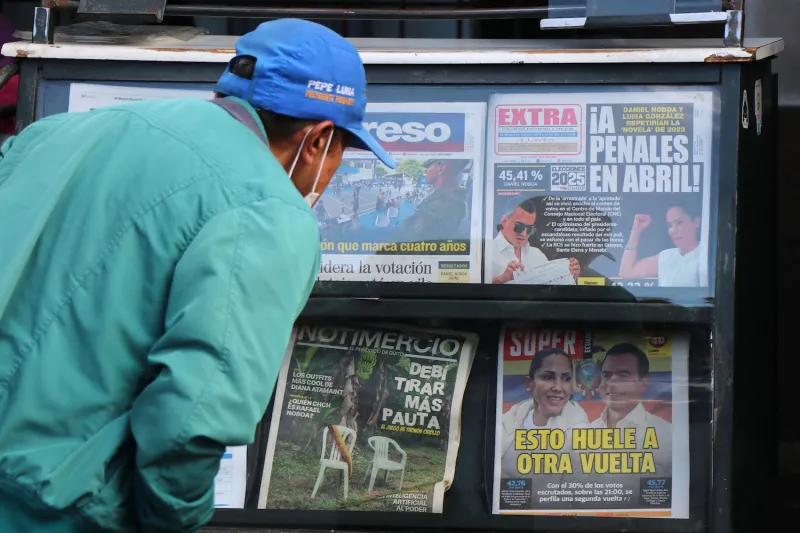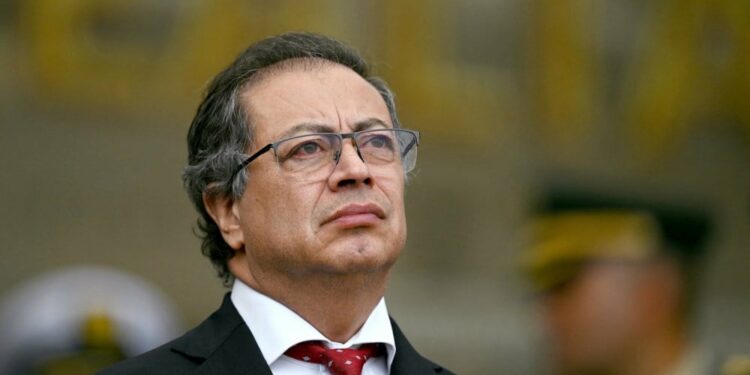Musicians play the marimba before a horse race to commemorate All Saints’ Day in Todos Santos Cuchumatan, Guatemala, on Oct. 31, 2024.Johan Ordonez/AFP via Getty Images
Marimba merriment. Next Thursday, Guatemala will celebrate National Marimba Day, with performances all day in Guatemala City’s Central Park.
Many historians believe that Guatemala’s national instrument—a cousin of the xylophone—was first brought to Central America as part of the African slave trade. It became popular among the Indigenous Maya; for many years, Spanish colonists tried to repress its use.
Guatemalans later developed the double marimba, with two rows of keys. In the 1970s, lawmakers named it the country’s national instrument. There is even a marimba song that was composed to honor the country’s legislature.
The marimba is also the national instrument of Costa Rica, where National Marimba Day is celebrated on Nov. 30.
Which of the following singers is from Guatemala?
Paco PĂ©rez
Papa A.P.
Polache
Aurelio MartĂnez

A man reads front pages about the first round of Ecuador’s presidential election at a newspaper kiosk in Quito on Feb. 10.
A man reads front pages about the first round of Ecuador’s presidential election at a newspaper kiosk in Quito on Feb. 10.Galo Paguay/AFP via Getty Images
The first round of Ecuador’s presidential election last Sunday resulted in a near-tie. Center-right President Daniel Noboa won 44.2 percent of votes, while leftist candidate Luisa González—who comes from the political movement of former Ecuadorian President Rafael Correa—earned 44 percent. Both will advance to a runoff on April 13.
Votes for the country’s congress were similarly split: Noboa’s and González’s parties each won slightly less than half of the seats in the legislature.
Rather than issuing a resounding endorsement for either top candidate to address Ecuador’s struggles with organized crime, Sunday’s vote was a signal of what voters don’t want: an untested third-party candidate. The runoff will feature the exact same candidates as the last presidential runoff election, held in 2023.
In first rounds of Ecuador’s last two presidential elections, an Indigenous candidate (Yaku Pérez in 2021) and an anti-corruption candidate (Christian Zurita in 2023) earned robust third-place finishes of 19.4 percent and 16.4 percent, respectively. Pérez missed the runoff in 2021 by only a fraction of a percentage point. But on Sunday, the third-place finisher, Indigenous candidate Leonidas Iza, received just 5.2 percent of the vote.
Noboa’s flagship policy, announced last January, is a crackdown on organized crime that combines troop deployments with investigations. In 2024, homicides in Ecuador dropped by 15 percent from their 2023 total, according to government data. But numbers rose again last month, which was the deadliest January in Ecuador in a decade.
Noboa’s security forces drew criticism after an incident last December in which four Black boys aged 11 to 15 were found burned and dismembered in the city of Guayaquil after they were apprehended by air force personnel. The officers said that they detained the boys thinking they had carried out a robbery and released them before their deaths, but 16 soldiers are now under investigation.
González has pledged many of the same hard-line anti-crime policies as Noboa but says that she would pair such an approach with more social spending.
Source link : http://www.bing.com/news/apiclick.aspx?ref=FexRss&aid=&tid=67c210663ee44ebf9a55db53f72cfcc2&url=https%3A%2F%2Fforeignpolicy.com%2F2025%2F02%2F14%2Fcolombia-petro-cabinet-resignations-pink-tide-latin-america-left%2F&c=8752642321127921172&mkt=en-us
Author :
Publish date : 2025-02-13 19:00:00
Copyright for syndicated content belongs to the linked Source.












